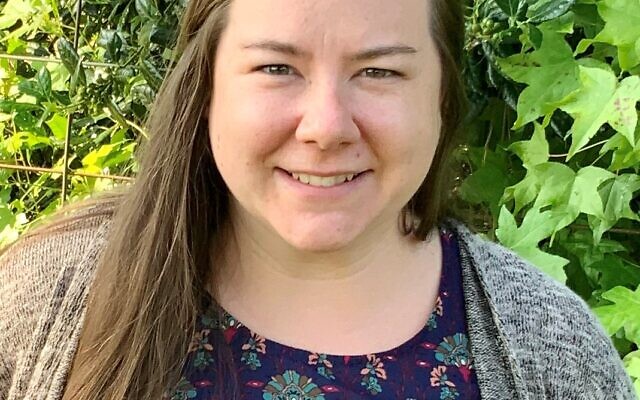Jewish Abilities Alliance Adapted Funding With COVID
Atlanta Jewish agencies that provide services and inclusion initiatives for people with disabilities receive funding to keep them involved virtually in the Jewish community.

The Atlanta Jewish community obviously has had to adapt in all kinds of ways because of the COVID-19 pandemic. In some cases, however, agencies made decisions fortuitously earlier in the year, not expecting 2020 to unfold as it has.
The Jewish Abilities Alliance, an initiative of the Jewish Federation of Greater Atlanta, has done both. Launched in 2012 to provide resources and support to people with disabilities so that they can more fully participate in the Atlanta Jewish community, JAA realized immediately last spring that with everything going virtual, it had to make major adjustments to its funding.
“When the community switched to the virtual reality, we understood that individuals with disabilities were disproportionately at risk of isolation,” said Annie Garrett, JAA manager. “With services not being provided in person, some people with disabilities might be physically compromised and need more support.”
So, instead of awarding Inclusion Microgrants at the beginning of the year, as it has since 2018, JAA decided to defer the program until fall. Starting Oct. 19 and closing Nov. 16, JAA is accepting applications for grants up to $1,500 per project. “It’s an easy application process,” Garrett said. Since it launched the program, JAA has awarded more than $25,000 to 23 Atlanta Jewish agencies that provide services and inclusion initiatives for people with disabilities.
That doesn’t mean JAA has sat still, however. Instead, in April it launched its Virtual Engagement Support Fund, through which it is “equipping and engaging people to integrate into Jewish programming by offering devices and technology,” Garrett explained. For example, it has provided funding for flex seating devices to help people with disabilities sit comfortably, while increasing oxygen flow to the brain. JAA has also provided funding for slanted desks, which make learning more accessible.
In the past, these kinds of devices were provided directly to Jewish agencies that offered services to those with disabilities. Now that people are learning virtually, these devices are needed in homes. “Everyone needs something different. Some need headphones or closed captioning services,” Garrett said.
Agencies that provide the virtual learning and services must apply for the individuals who need the devices. Garrett said the requests have come “in waves.” By early September, only one-quarter of the initial seeding of $1,500 had been allocated. Garrett said she hopes the funds will last through the year.
Also in early September, Jewish Family & Career Services announced that the Hebrew Order of David International donated a van to the Atlanta agency. The intent of the van was that it will help transport participants in JF&CS’s Intellectual & Developmental Disabilities Services to medical appointments, recreational activities and volunteer opportunities. The van was donated in memory of Alan Rubenstein, a founding member and past president of HOD Lodge Carmel in Atlanta. Fundraising for the van was led by local HOD North American Governing Lodge executives David Joss, Les Kraitzick, Mario Oves and Alan Smirin, and assisted by HOD brother Sid Besmertnik. The ribbon-cutting for the van had been planned for the spring but was postponed by the pandemic.
Even before the pandemic struck Atlanta and the world in early spring, JAA had decided to partner with Matan, a national Jewish consulting firm, to conduct research about the disability inclusion needs in the local Jewish community. “This study will identify our community’s inclusion strengths and weaknesses and how we are serving and supporting and engaging the community in Jewish life,” Garrett said.
According to Garrett, about 10 percent of the general, and Jewish, population is diagnosed with some kind of disability. However, since that person’s family is also impacted, disabilities have a ripple effect in the community.
She said the timing of the study couldn’t have been better. “Now we will get the relevant data on how people with disabilities have been affected by the pandemic. Where are we excelling in inclusion and where are we behind? What do we need? It’s a very collaborative process that is looking broadly at the community.” Results from the study are expected by the end of the year.
- Atlanta Jewish Community
- Jewish Abilities Alliance
- jewish federation of greater atlanta
- Annie Garrett
- Inclusion Microgrants
- Virtual Engagement Support Fund
- Jewish Family & Career CServices
- Hebrew Order of David International
- Alan Rubenstein
- David Joss
- Les Kraitzick
- Mario Oves
- Alan Smirin
- Sid Besmertnik
- Matan
- Jan Jaben-Eilon
- Education
- COVID
- COVID-19
- Coronavirus
- pandemic
- Community



comments